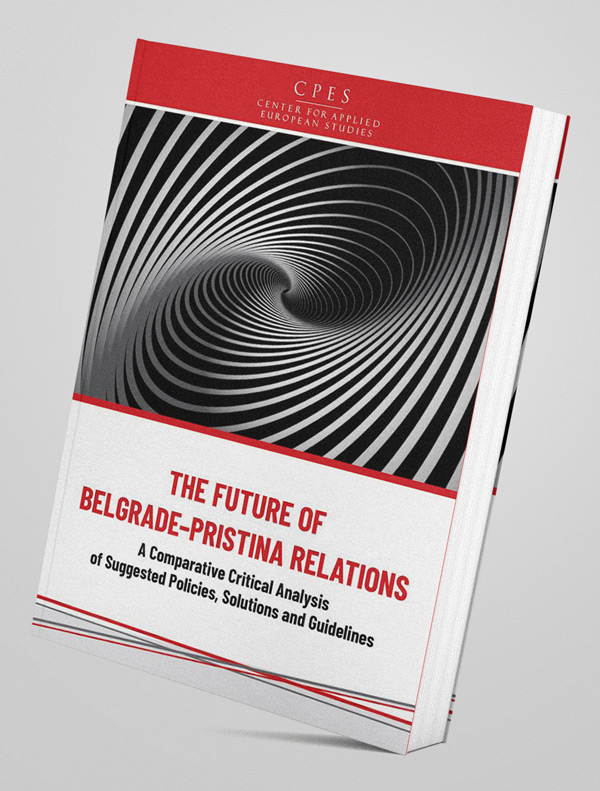Conference held on December 3, 2018 at the Faculty of Political Sciences in Belgrade
Serbian-Kosovo Relations and Security in Southeast Europe
Addressing the issue of relations between Serbia and Kosovo is the most pressing political and security matter in the Western Balkans and Southeast Europe. After finding a solution to the “name matter” of Macedonia, the attention of the international community (and especially the one of the Western Balkans countries) focused on the outcome of the process of normalization of Belgrade–Pristina relations. This could be clearly seen during the presentation of the participants of the regional conference held on December 3, 2018 at the Faculty of Political Science in Belgrade, as well as at the round tables where the participants discussed some of the current developments in Serbian–Kosovo relations, such as the decision of Kosovo to introduce 100 % taxes on all goods originating from Serbia or the issue of “demarcation”, which was repeatedly mentioned by the President of Serbia as one of the possible solutions. Of course, most of the attention was devoted to the main topic: regional security aspects of possible scenarios for resolving Serbia–Kosovo relations. As was the basic idea, the authors and discussants put particular emphasis on concrete scenarios of future relations between Serbia and Kosovo from the perspective of their countries and the possible consequences that three scenarios would have in those environments: 1) Status quo, 2) Change of borders / Territory exchange and 3) Normalization of relations by reaching a legally-binding bilateral agreement in the ongoing EU-mediated dialogue. In addition, the authors also contributed to a better understanding of future developments in human rights, minority rights and human security, primarily in Serbia and Kosovo, in case each of these three potential scenarios is realized. Having in mind that almost all the authors of the texts presented a “SWOT” analysis of the topic, the conference managed to reach a cumulative regional view of all three scenarios, along with a certain degree of its evaluation.
What both authors and discussants paid particular attention to when analyzing each of these three scenarios was the impact that “external” actors – primarily Russia, China and Turkey – would have on the process of normalization of Serbia–Kosovo relations, considering the possible consequences that each individual scenario of the normalization of Serbia-Kosovo relations could have on the future influence and role of these actors in the region. In their analyzes most of the authors primarily referred to the general regional security, but also to the security situation of each individual country in the region. This was the most valuable aspect of the conference – obtaining the views and evaluations of Serbian, Kosovo and regional authors on assessing the possible impacts of these most probable scenarios of future relations of Serbia and Kosovo on the Euro (Atlantic) integrations of Serbia and Kosovo, of other Western Balkan countries but also the Western Balkans region as a whole.
Conference speakers and moderators:
Serbia:
Jovan Teokarevic, Center for Interdisciplinary Studies of the Balkans (CISBalk) of the Faculty of Political Sciences, University of Belgrade
Jasna Filipović, Center for Applied European studies, Belgrade
Jadranka Jelincic, CAES, President of the Executive Board
Dragan Djukanovic, Faculty of Political Sciences, University of Belgrade
Igor Novakovic, International and Security Affairs Centre – ISAC Fund
Milan Igrutinovic– Institute for European Studies, Belgrade,
Dušan Janjić, Forum for Ethnic Relations, Belgrade
Filip Ejdus– Faculty of Political Sciences, University of Belgrade
Dragiša Mijačić – Institute for Territorial Economic Development (InTER)
Bosnia and Hercegovina:
Alida Vracic, Think Tank “Populari”, Sarajevo, Fellow of the European Council on Foreign Relations
Milos Solaja, Faculty of Political Sciences, University of Belgrade
Kosovo:
Enver Hasani, Former President of the Constitutional Court of Kosovo
Besfort T. Recaj, Faculty of Law, University “Hasan Prishtina”, Prishtina
Albania
Arian Starova, President of the Atlantic Council of Albania and Chairman of the Board of the Institute for Southeast European Studies
(North) Macedonia
Jasmina Trajkoska, Faculty of Political Sciences, FON University, Skopje
Vlora Recica, Zoran Necev, Center for EU Integration, Institute for Democracy “Societas Civilis”, Skopje
Montenegro
Sinisa Vukovic, School of Advanced International Studies, Johns Hopkins University, Washington
Croatia
Radovan Vukadinovic, University College of International Relations and Diplomacy „Dag Hammarskjöld”, Zagreb
Sandro Knezovic, Institute for Development and International Relations, Zagreb
Greece
Nikolaos Tzifakis, Department of Political Science & International Relations, University of the Peloponnese
Ioannis Armakolas, Head of the South-East Europe Programme, ELIAMEP, Athens
Bulgaria
Vessela Tcherneva, European Council on Foreign Relations, Sofia
Romania
Miruna Butnaru-Troncota, Department of International Relations and European Studies, National University of Political Science and Public Administration (SNSPA), Bucharest
Austria
Kristof Bender, European Stability Initiative, Vienna


